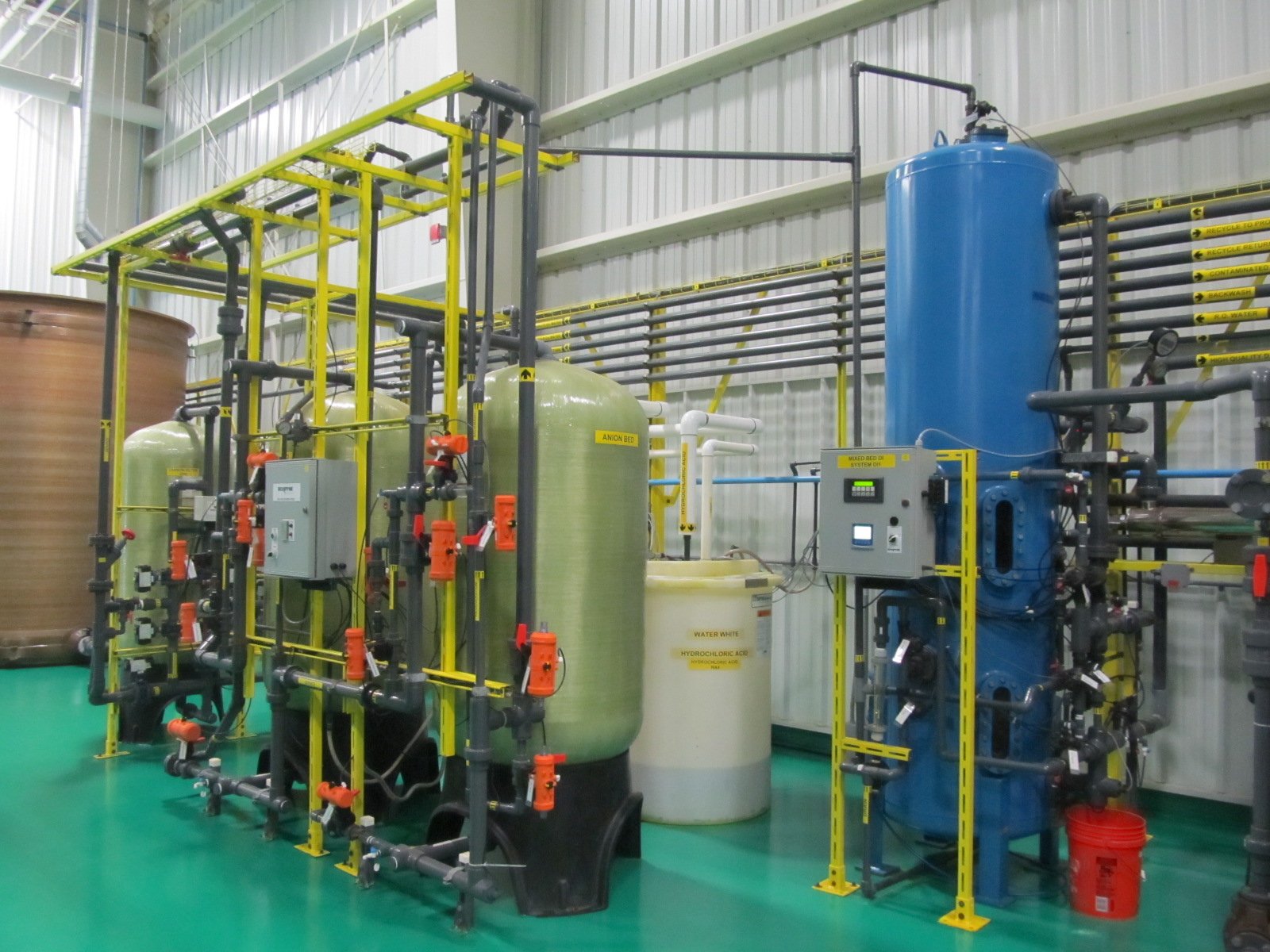Where Is Ion Exchange Used?
Ion exchange is a water purification method that uses a resin to remove ions from water. The process involves passing the water through an ion exchange membrane where it comes into contact with positively charged sites on the resin's surface.
These sites attract negatively charged contaminants such as lead and copper while allowing clean water to pass through unimpeded.
But what you might not know is how many different ways ion exchange can be used. Indeed, ion exchange can be used for various applications, depending on what you're trying to accomplish. But you can’t use ion exchange to its full potential if you don’t know what it’s capable of. We’re solving that problem today.
This blog is about ion exchange and, more specifically, the industries where it is used. Keep reading to learn more about ion exchange and the advantages of using it for your industrial wastewater.
Industries Using Ion Exchange
The industries that utilize ion exchange are diverse and ever-evolving. They include food and beverage processing, pharmaceuticals, power engineering, metals finishing, industrial wastewater treatment and water treatment, and electronics manufacturing, among other industries.
Food & Beverage Processing. Ion exchange is widely used in the food and beverage industry to remove impurities from water and extract and purify specific compounds. For example, ion exchange can be used to remove unwanted minerals such as calcium and magnesium from food and beverage production.
This can improve the final product's taste and quality and extend certain products' shelf life. Ion exchange can also be used to remove specific compounds like caffeine or unwanted flavors and odors. Additionally, Ion exchange can also be used to recover valuable materials, process waste, and improve sustainability.Pharmaceutical. Ion exchange is used in the pharmaceutical industry to separate and purify compounds and remove impurities and toxins. It is also used to produce excipients and active pharmaceutical ingredients (APIs).
Ion exchange chromatography is used to determine trace trifluoroacetate from an excess chloride, phosphate, and other anions without sample preparation. Ion exchange resins are also used as drug carriers in pharmaceutical dosage forms for controlled-release formulation.
These resins are water-insoluble, ionizable functional groups that have received considerable attention from pharmaceutical scientists because of their versatile properties as drug delivery vehicles.Power Engineering. Ion exchange produces ultra-pure water for use in boilers and turbines. The process removes impurities such as minerals, silica, and dissolved gasses from the water. These impurities can cause scaling, corrosion, and other problems that can damage the equipment and reduce efficiency.
Ion exchange resins exchange ions in the water, replacing impurities with hydrogen and hydroxide ions that combine to form pure water. The resulting ultra-pure water is used as feedwater for boilers and cooling towers and for cleaning and rinsing equipment in power plants.
Using ion exchange in power engineering helps improve the reliability and efficiency of power generation while reducing maintenance costs and environmental impacts.Metals Finishing. Ion exchange is a crucial process in the metal finishing industry, where it is used to purify water and remove impurities that can affect the quality of the finish.
The process involves passing a solution containing metal ions through an ion exchange resin, which selectively binds to and removes the metal ions from the solution. This allows the metal finishing process to proceed more efficiently and effectively, as the purified water ensures that the metal ions are evenly distributed and adhered to the surface.
Additionally, ion exchange can be used to recover valuable metals from waste streams, reducing waste and improving sustainability.Industrial Wastewater Treatment and Water Treatment. Ion exchange is a common technique employed to purify water that has been contaminated with heavy metals or unwanted ionic compounds.
An ion exchange resin removes ions from the wastewater by exchanging them with similarly charged ions that are on the resin surface. These resins are usually porous and have a high affinity for certain ions, so they can selectively capture and remove contaminants from the wastewater.Electronics Manufacturing. Ion exchange purifies and controls the composition of various chemicals and solutions. One of the most important applications of ion exchange is purifying ultra-pure water for use in microchip and electronic component production.
In this process, ion exchange resins remove trace levels of ions from the water. Even those trace levels can negatively impact the performance and reliability of electronic devices.
Ion exchange is also used to selectively remove specific ions from solutions used in electronic manufacturing, such as preparing photoresist solutions for photolithography. This allows for precise control over the chemical composition of these solutions, ensuring the quality and consistency of the final electronic products.
Advantages of Ion Exchange
Now that you know where ion exchange is used, let’s go over some of the advantages of ion exchange.
Ion exchange removes dissolved ions that cause hardness and scaling in water, improving water quality for industrial use.
Ion exchange can remove harmful contaminants such as heavy metals, radioactive isotopes, and nitrates from the water, making it safe for consumption or discharge into the environment.
Ion exchange can purify water for specific industrial processes, such as manufacturing or semiconductor production.
Ion exchange can be customized to target specific ions or molecules, allowing for the precise purification of water or other liquids.
Ion exchange systems are often automated and require minimal maintenance, making them a cost-effective solution for water treatment.
Get Your Ion Exchange System from J. Mark Systems
Ion exchange is a versatile and powerful technology that can provide significant benefits for a wide range of industrial applications. Whether you want to improve water quality, remove contaminants, or achieve higher purity for your industrial processes, ion exchange systems can help you optimize your water treatment systems.
If you’re interested in optimizing your water treatment systems, get started with a water optimization audit from J. Mark Systems. With decades of experience in industrial wastewater treatment, J. Mark Systems will provide you with the right wastewater treatment system, no matter what industry you’re in. Contact us today to get started.

